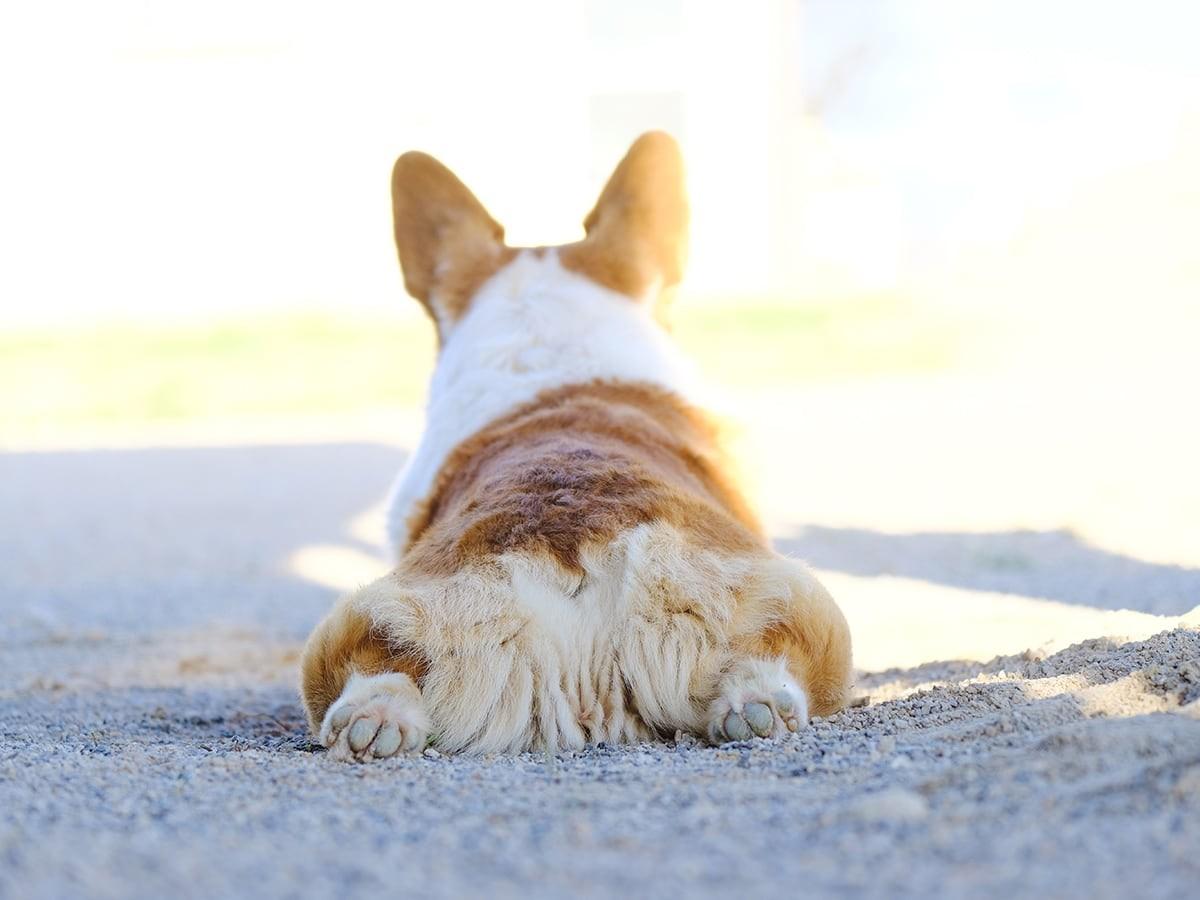Dogs dragging their butt, what does it mean?
If you’ve ever witnessed your dog scoot across the floor on their butt, you’re not alone. This is a fairly common behavior and no, they don’t just do it to embarrass you. Before you cringe at your dog’s behavior, it may be helpful to understand why they’re doing this.
This behavior, known as scooting, is a dog’s way of trying to alleviate a pain or discomfort back there. The cause of irritation can range from mild inflammation to infection. The most common reasons for anal irritation in dogs include anal gland issues, tapeworms, excess fecal matter, and allergies. Figuring out the source of the irritation can be difficult, but once you do you can help them eliminate their discomfort and subsequently their scooting behavior.If your dog continues to have digestive discomfort, they may poop blood, have puppy diarrhea, requiring puppy diapers,
Why do dogs scoot?
There are a multitude of reasons your dog could be doing this. If your pup just does it from time to time, it’s likely just a mild discomfort that doesn’t need to be looked into. However, if your dog is doing this frequently, it could be a deeper issue that you’ll need to help them fix. Keep note if it happens when your dog is in heat.
The most common reason is an issue with their anal sac. They can have impaction, or clogging, of their anal sac which can be very uncomfortable. They can also have infected anal sacs or even cancer in the anal gland. Fortunately, there are ways to help your dog if they are experiencing these issues. Try including fiber in their diet to ease their bowels. Also, choose the best puppy food. In more serious cases, manual expression done by someone with experience may be necessary to release excess material in your pup’s anal sac. While you can perform this yourself, you should make sure to have your vet or groomer teach you how.
Another cause of scooting is allergies. Allergic reactions to food, fleas, and other environmental substances can cause irritation. Dogs with allergies often have itchy skin, and if they have a food allergy then the remains of that food can cause inflammation on their way out. To avoid this, make sure your dog is following a hypoallergenic diet. You can also consider medications to alleviate skin inflammation and itching. Some effective drugs for this are corticosteroids, atopica, and apoquel. Talk to your vet about which is best for your pup. Other common dog allergies include fleas, cigarette smoke, pollens, mold spores, and certain medications. Some allergies can be easily identified while others may be much trickier. If you suspect that your dog has allergies but you aren’t sure what’s causing them, consult your veterinarian to get to the bottom of it. You can also ask why do dogs eat poop. It can also be a symptom of worms.Diarrhea may also be a factor in your dog’s frequent scooting and eating grass. To deal with diarrhea, focus on your dog’s diet and personal hygiene. Feed them a bland, easy-to-digest diet and consider mixing in a probiotic. Keep your dog’s rear end clean by rinsing with weak saltwater after each bowel movement and applying an ointment to prevent scorching. If the diarrhea doesn’t end in two days, your dog should see a veterinarian.
Another common cause of irritation can come from grooming. Dogs that require frequent grooming, such as Cocker Spaniels and Poodles, Schnoodles, Tibetan Spaniel may experience clipper burns and irritations from sprays, perfumes, or grooming products that get under their tail and around their bottom. Check for tiny nicks and razor burn if your dog is scooting after grooming. If they’re rolling around and itching all over, it may be from a grooming product. Ask your groomer to switch to products that are oatmeal-based, meant for sensitive skin, or are hypoallergenic.
Other, slightly less common but still plausible explanations for your dog’s scooching are dingleberries, parasites (tapeworms), genital irritation, and behavioral issues. Check your dog’s rear end to make sure that their fur is trimmed and that their skin doesn’t look irritated. Also, think about how you react when your dog does this behavior. If you shout or laugh at their behavior, you may be making the problem worse. Giving your dog attention when they do this makes them realize that their behavior makes them the center of attention, which could cause them to do it more often. So, be patient with them and don’t give them too much of a reaction when they do this! Instead, try to find the root of the issue so that you can correct it and put an end to their scooting behavior.
How to reduce your dog’s scooting
While this behavior is likely not a medical emergency, it does require some investigation. Dogs do this when their rear end is irritated, so you need to address the cause of the irritation or else your dog will continue to scoot. If you can’t figure out what’s causing them discomfort, it’s time to reach out to your vet. Not only will identifying and eliminating the issue prevent your dog from scooting, but it will also make your dog feel a lot better!
We know this subject isn’t the most fun to talk about, but it’s important that you figure out what to do in these situations in order to make your pup feel better.

If you need a story or someone to talk to your cat like a person, I’m your person. With 3 cats, 1 dog, and a lifetime of pets, I write from experience, usually with a cat on my keyboard and a dog in my lap.
Puppy Leaks
Petful
Akc











